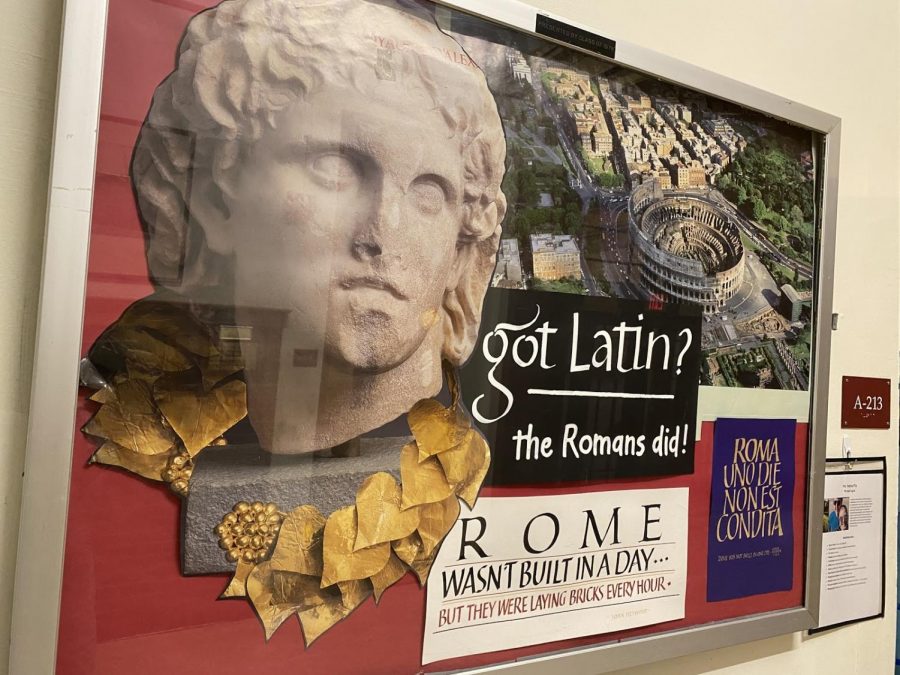Latin with Batten
December 6, 2020
How did Latin originate? The birth of Latin took place around 700 BC in a small settlement called Palatine Hill. According to ancientlanguage.com, the speakers of this language were called Romans after their “legendary” founder, Romulus.
Latin has been taught at BFA since it opened its doors in 1930. Lydia Batten has been teaching Latin at BFA for nine years. These past couple of years she has noticed a drop in her enrollment numbers for Latin l. Why is there a decrease in numbers?
“There’s a perception out there that Latin is hard . . . It’s not hard, it’s challenging. And, that is where I would like to change that perception,” Batten said.
Batten is determined to encourage students to take Latin. She hopes to take her efforts to middle-school sending schools, such as SATEC and SACS, by introducing the Latin program to incoming freshmen via an outreach setup or an exploratory class.
Batten believes Latin is the “best-kept secret here at BFA.” Fortunately, that is no longer the case because of her bulletin board in the guidance hallway at BFA reading “got Latin?” (pictured above).Each spring, UVM’s Classics department hosts a Latin Day event for high school Latin students and teachers. Thanks to Batten, BFA has been a participant every year. She takes her Latin I-IV students to engage themselves in the skits performed on Roman culture, Roman trivia competitions and the outdoor sled pull.
Current students are taking Latin for various reasons such as “to help with [their] medical terminology and English” (Reagan Richard ‘21) or because their older sibling took it and they think it is a “cool language” (Orion Ward ‘23). Ward believes that fewer people are signing up for Latin because “it’s a challenging language to learn.”
On the other hand, Richard believes that the reason for enrollment drops is that it is difficult to engage with Latin while with “… Spanish or French you can immerse yourself in that culture and [it is] easier to learn.”
Richard wishes more students knew about how “[Latin] helps improve your English and [how] it’s nice to learn about … the Greeks and Romans because it’s not just language you learn, but also the history.”
Additionally, an article at mcl.as.uky.edu shows students should take Latin because it will help them improve their vocabulary and develop critical thinking.
“I like to tell my students that be prepared to see Latin anywhere. Sometimes we’ll see it in advertising or [in] some of the catchphrases that people have for Latin. Like ‘carpe diem,’ which everyone knows as ‘seize the day,’” said Batten.

